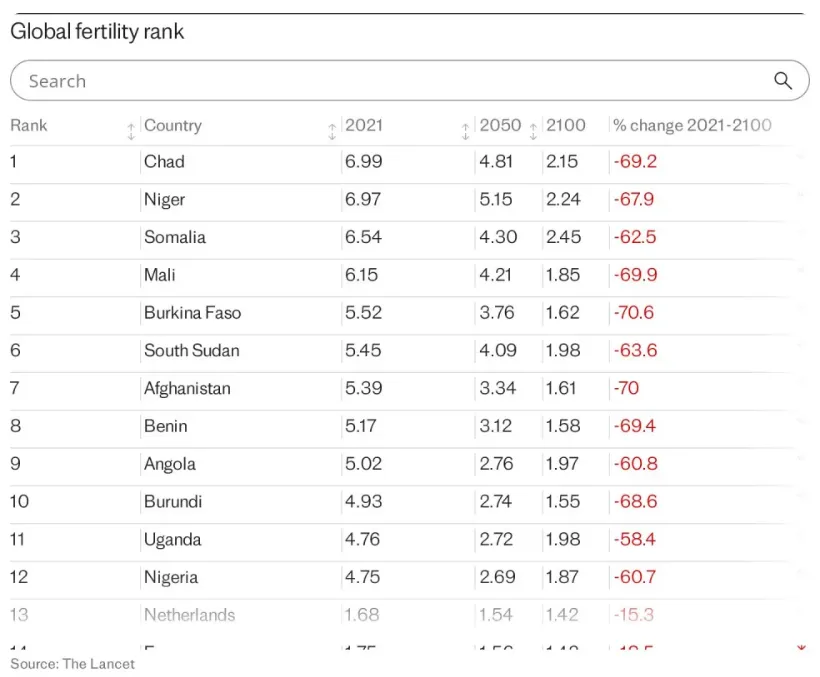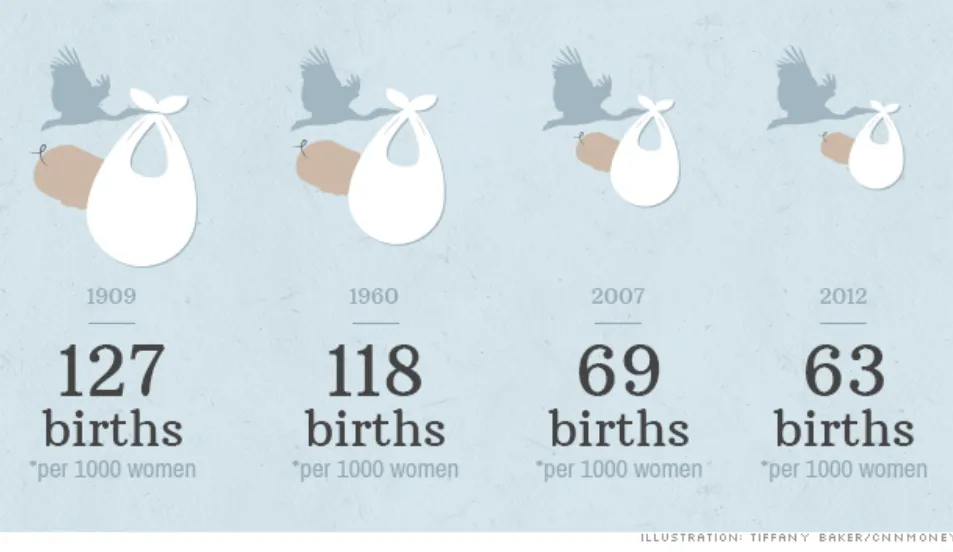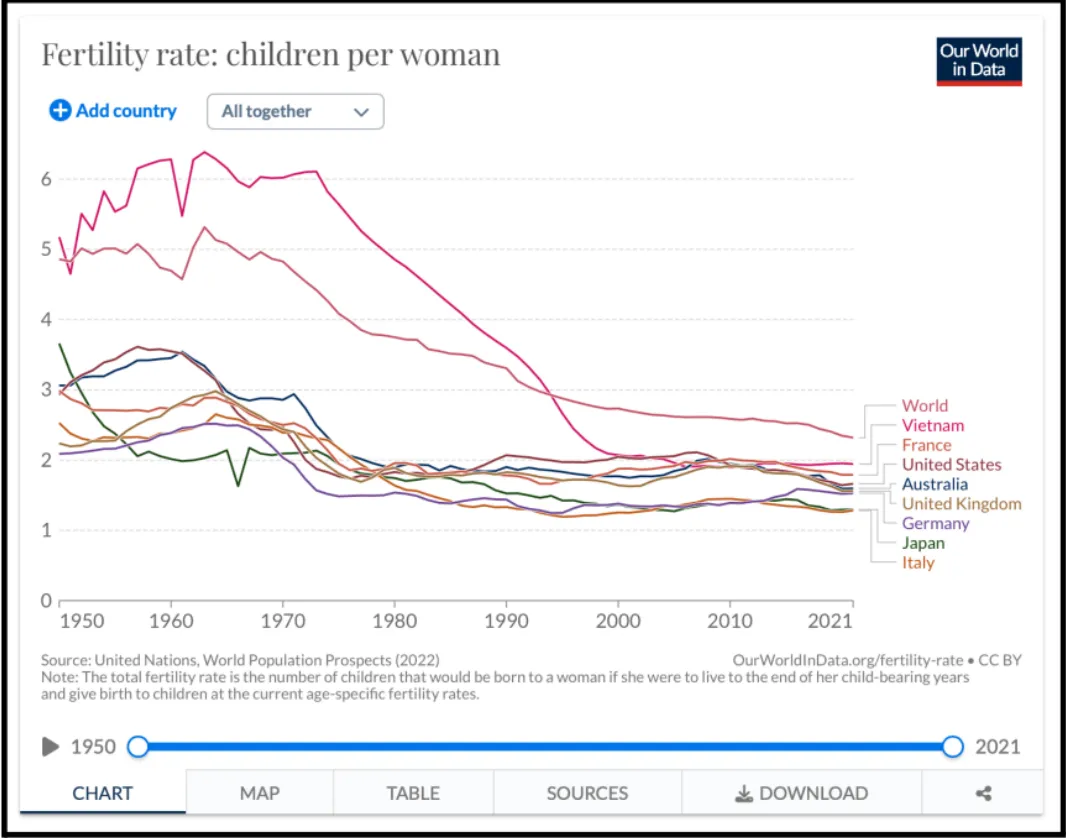Lancet Study
World population is expected to fall for the first time since the Black Death due to plummeting birth rates, a recent Lancet study has found. By 2100, over 97% of countries will have fertility rates below the replacement level they forecast. Almost every country's population is expected to decrease by the end of the century.
The decline in the number of children women are having has started to slow the growth of the global population, which stands at just over eight billion, and could mean it starts to fall within decades.
It would be the first time that the number of people on the planet has decreased since the Black Death bubonic plague pandemic killed as many as 50 million people in the mid-1300s, including up to a third of the population in Europe.
That is the only time to date that the number of humans on the Earth has fallen, with historians estimating that the global population fell from around 400 million to 350 million.
Like many Western countries the average woman in the UK had 1.49 babies in 2023. It will mean the current population of around 67 million becomes increasingly unbalanced toward older generations before falling as the eldest people die.
Britain’s falling birth rates are already playing out in real time, with recent data showing primary and secondary schools seeing fewer pupils apply for spaces that were once coveted. The implications of a falling population for society will be “immense” as the old outnumber the young and increase pressure on health services and the workforce.
Societies will have to rely on immigration to rebalance the demographics but that brings with it associated problems. Even among African countries that have higher birth rates, are projected to have collapses of about 60-70% in the number of children being born.

Dr Natalia Bhattacharjee, co-author of the study and lead research scientist at the Institute for Health Metrics and Evaluation (IHME) at the University of Washington, US, said the declining fertility rates;
will completely reconfigure the global economy and the international balance of power and will necessitate reorganizing societies.
I read that " will necessitate reorganizing societies" and think UN Agenda 30 and the New World Order plans to control society. To what degree will that involve 'organising' female fertility and bodily autonomy I wonder?

Professor Stein Emil Vollset, senior author from IHME, said the world was “facing staggering social change through the 21st century”;
In many ways, tumbling fertility rates are a success story, reflecting not only better, easily available contraception but also many women choosing to delay or have fewer children, as well as more opportunities for education and employment.
It shouldn’t come as a major shock to learn that the study was funded by the Bill & Melinda Gates Foundation. They have publicly stated that they care very much about over population – especially in Africa and will no doubt see the decrease as a major victory. The study concluded that their findings were “a success story”.
I've covered this topic before where I put forward the findings that this decrease in birthrates is being driven by women choosing not to have children. I concluded there that all in all 2100 will not likely resemble the world as it is today.


